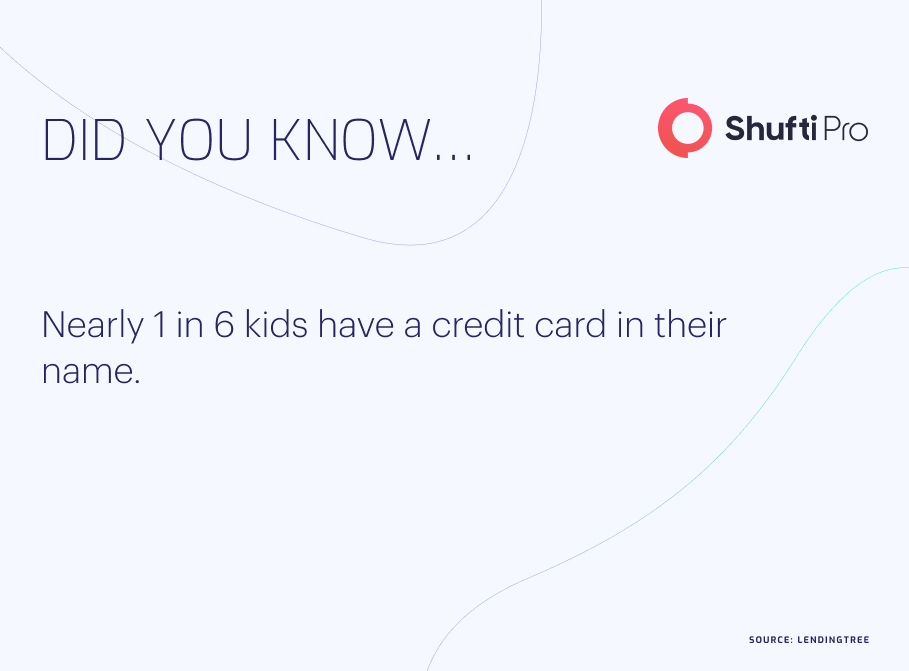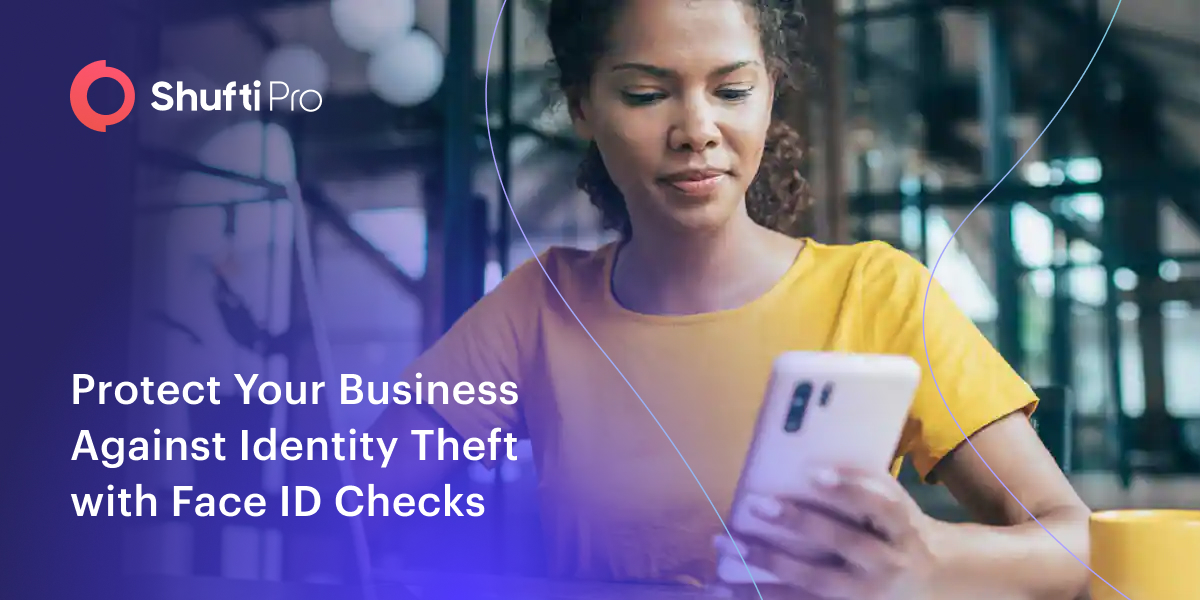Age Gating VS Age Verification | Enhancing Security for Minors

- 01 What is Age Gating?
- 02 What is Age-Gated Content?
- 03 What is Age Verification?
- 04 Why is Age Verification Crucial?
- 05 How does Identity Verification Make Age Gates and Age Verification Stronger?
- 06 Is Age Gates a Thing of the Past?
- 07 Advantages of Age Verification Over Age Gates
- 08 Age Verification with Shufti
Age gating was once employed to stop minors from accessing age-restricted content. However, the age gates didn’t work very well in the past. To comply with stringent regulations, more companies are now using online age verification systems. But how do age gating and age verification differ from one another? Simply put, age gating involves asking users if they are the appropriate age via a checkbox system. Contrary, age verification offers a more thorough or comprehensive method and necessitates that users provide proof of their age with authorised documents. In the US, 84% of teenagers and 53% of children under the age of 11 use smartphones, according to a survey. Comprehend the main difference between age gating and age verification whilst understanding how companies keep on the cutting edge of online age verification.
What is Age Gating?
Age gating is a technique used to limit access to particular features or content on a website. Its primary goal is to stop children from accessing or engaging with material that isn’t suitable for their age group. This covers pornographic materials, mature video games, or alcohol-related content.
Users typically have to enter their birthday to verify their age when age-gating occurs. These websites frequently employ this technique when marketing age-restricted goods like tobacco or alcohol. To view certain content, users of some websites must check a confirmation box indicating that they are at least a specified age.
Nonetheless, age gating is not as secure as age verification because users can easily get around it by falsely representing their age. Many states have created age restriction regulations for pornography websites in part due to this ineffectiveness. Age gating has drawbacks despite acting as a decent protective measure. For instance, it is simple to abuse and significantly depends on user honesty. Online platforms frequently consider stronger solutions, such as age verification, to overcome these flaws.
What is Age-Gated Content?
Users are often required to submit age-related information or to go through a verification process to access age-gated content. In contrast, soft age gating involves simply verifying one’s age without further verification. For example, an alcohol-selling store might employ a pop-up asking website visitors if they are over 21 with yes and no options. If users choose no, they will be taken to a message that explains they aren’t old enough.
Other merchants may also request parental permission and proof of age, particularly on social networking or gaming platforms that host sensitive data or information. This makes sure that children cannot access services or items that are improper or potentially risky.
Age gates enable e-commerce firms to establish confidence with their users by preventing minors from viewing their products, demonstrating their dedication to minor safety and state legislation, and safeguarding minors online.
What is Age Verification?
Before granting access to age-restricted content, goods, or services, age verification solution is a process that ensures a user meets a certain minimum age criteria by ID verification or comparing information using third-party data. It provides businesses a safe and secure way to allow age-appropriate individuals access to online activities whilst adhering to rules and regulations.

One of today’s buzzing issues, especially in the business sector, is age verification. With technology advancing day-by-day and smart devices being available in practically every home, it is concerning for children.
Why is Age Verification Crucial?
To grant or deny access to online material or services, age verification is a crucial step that verifies a user’s age. It not only maintains users’ ages but is also essential for maintaining online safety and the value of digital activities. It includes:
- Protects minors from age-restricted and age-gated content
- Enhance legal compliances and regulations
- Builds trust with consumers
- Enhances online safety
1. Minors Protection
Age verification’s primary goal is to protect children from purchasing or viewing stuff that is intended for adults. It stops children from entering these potentially threatened or restricted areas and also stops them from making purchases they shouldn’t. The Pew Research Centre states that 59% of American teenagers have experienced internet bullying. In the meantime, UK research found that 1 in 4 kids used social media to access distressing material. According to a UNICEF survey, bullying has occurred online for over 1/3 of young people in 30 different nations. These statistics are continuing unabated and show no sign of stopping anytime soon.
2. Legal Compliances and Regulations
In addition to moral and ethical issues, age verification is now a legal obligation. Governments and regulatory authorities worldwide have acknowledged the requirement to safeguard minors and youngsters online. Age verification is now required by laws and regulations, making it not only a wise business decision but also a legal need.
Age verification will be significantly impacted by the General Data Protection Regulation (GDPR), especially concerning the gathering of minor data. Companies must use Data Protection Impact Assessments (DPIAs) as an essential tool to identify and address any data protection problems. These evaluations are very important in determining age verification procedures.
3. Build Trust and Confidence
Businesses show their dedication to user safety by putting strong age verification methods in place. This promotes consumer confidence, which has the potential to be a potent motivator of brand loyalty and trust. Age verification not only protects children but also improves security as a whole. It contributes to the prevention of fraud, identity theft, and misuse of personal information, making the Internet a safer place for everyone.
4. Boost Online Security
Websites must now use age verification as a key security measure to prevent children from accessing offensive, restricted information online. Protecting children from such content in the digital age is a top priority for governments all around the world.
How does Identity Verification Make Age Gates and Age Verification Stronger?
Artificial intelligence-powered age-verifying solutions utilise biometric verification and machine learning to identify fake IDs and stop users from accessing online information that isn’t acceptable for their age. By doing this, it is made possible for only verified users to access age-restricted material, goods, or services.
For instance, an online identity verification system asks customers to upload a selfie along with their ID, which is then compared to make sure only adults of legal age are receiving services. Compared to conventional age gates, this makes the age verification procedure more robust and safe. Additionally, the user’s information submitted during the verification process is matched with their ID information, improving the process’ accuracy and preventing transactions by minors. Additionally, since machine learning and AI algorithms are able to learn from every encounter, they will eventually be able to detect spoofs, fake IDs, and cyber attackers with greater precision.
Is Age Gates a Thing of the Past?
Regarding age verification regulations, organisations are putting age gates on their websites to stop children from accessing explicit content or products that are only for people of a certain age. But are they effective enough to stop minors from moving forward? They are not now. This is why age gates depend on the user’s honesty to input their date of birth or tick a box to validate their age. Since there is nothing else to verify the information that users submit, businesses can never be sure if they are being truthful or not
Advantages of Age Verification Over Age Gates
Age gates can be a good deterrent in a perfect world, but when kids use forged identifications or lie about their ages, they are readily bypassed. They also rely on self-reporting and do not cross-check or verify a user’s age. According to a survey, 17-year-olds have a 29% probability of passing as 21 or older, proving this is inefficient. Contrarily, age verification uses multiple methods to cross-check information, making it exceedingly difficult to trick.
For example, AI-powered age verification solutions leverage biometrics and data comparison to instantly confirm a user’s age. They employ advanced algorithms to find abnormalities that are invisible without technology implementation. This can assist them in swiftly identifying individuals using fake or altered identification and preventing minor visitors from engaging in non-consenting transactions.
Furthermore, customers must upload a selfie to use age verification services. This enables businesses to ensure that the customers they are selling to are of legal age and to adhere to international age verification rules like the GDPR, COPPA, the Gambling Act of the UK, and FFDCA.
Age Verification with Shufti
These days, online businesses are trying to cope with enhancing minors’ security in the age of AI. The solution is simple and easy: deploy a comprehensive age checker that guarantees both the individual’s identity and age to abide by KYC & AML regulations.
For enterprises, Shufti provides an AI-powered age verification solution that uses government-issued authorised verification documents like an ID card, driver’s licence, and passport to confirm the user’s age. To verify their age, users only need to enter their date of birth and hold up their ID card in front of a webcam or smartphone camera. The cutting-edge solution from Shufti gathers data from the ID document using OCR Scanner and authenticates the retrieved data and the user’s face. This service can quickly determine an individual’s age, guaranteeing a smooth customer experience and a high conversion rate whilst adhering to simple or complex native and international regulations.
Stuck with the traditional age-gating processes and need to secure your business operations and enhance minor security whilst maintaining compliance?











